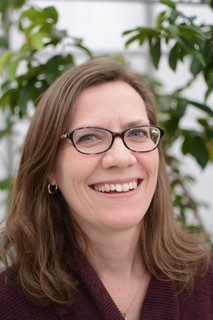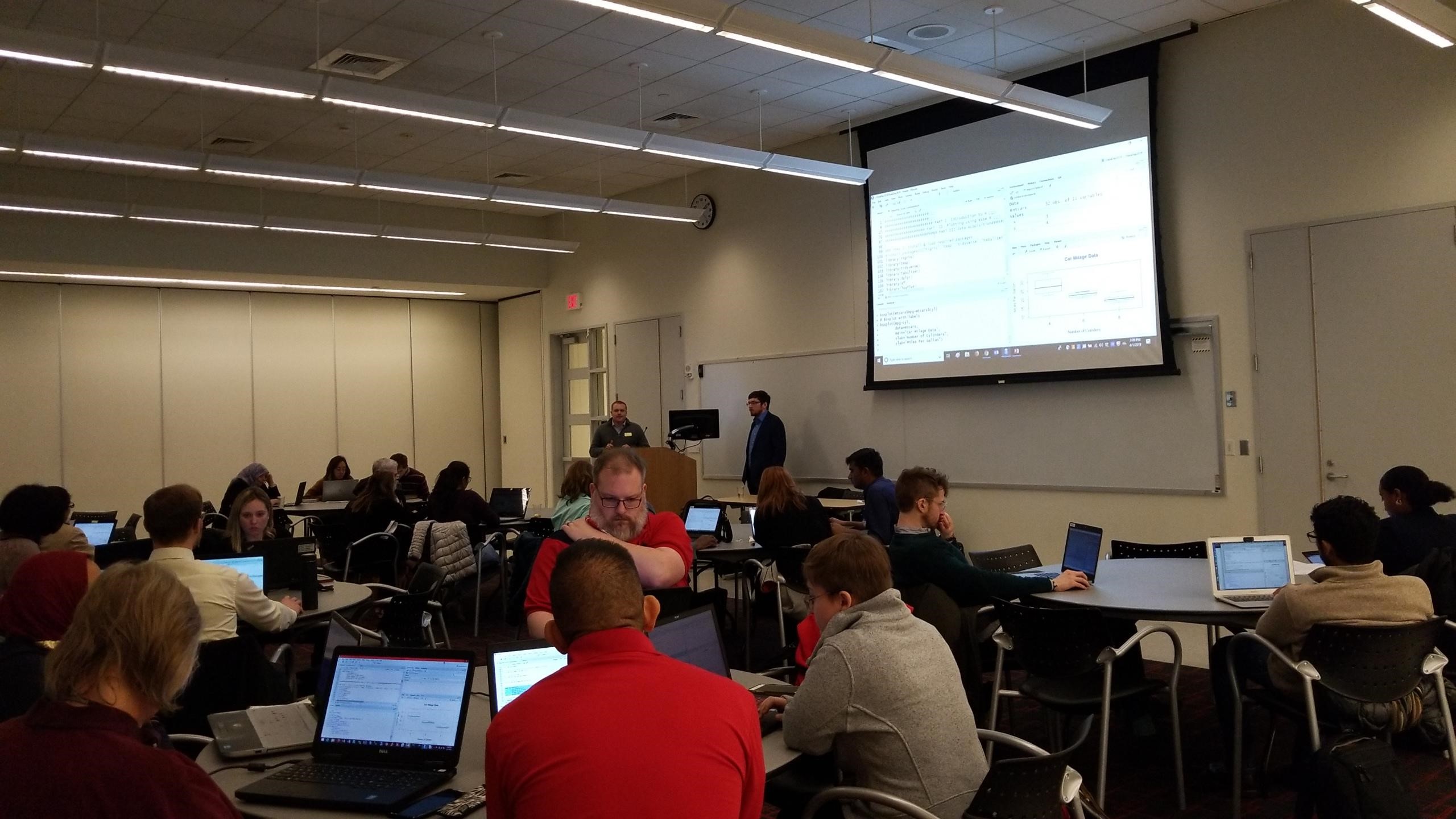Article Written by Rebecca Olson – Social Science and Business Informationist.
On April 1, 2019, UC Libraries hosted the 4th annual Data Day Conference. A celebration of research being held on campus, in the local area, and on the national and international level, this year’s focus was on Diversity, Equity, and Inclusion in data.
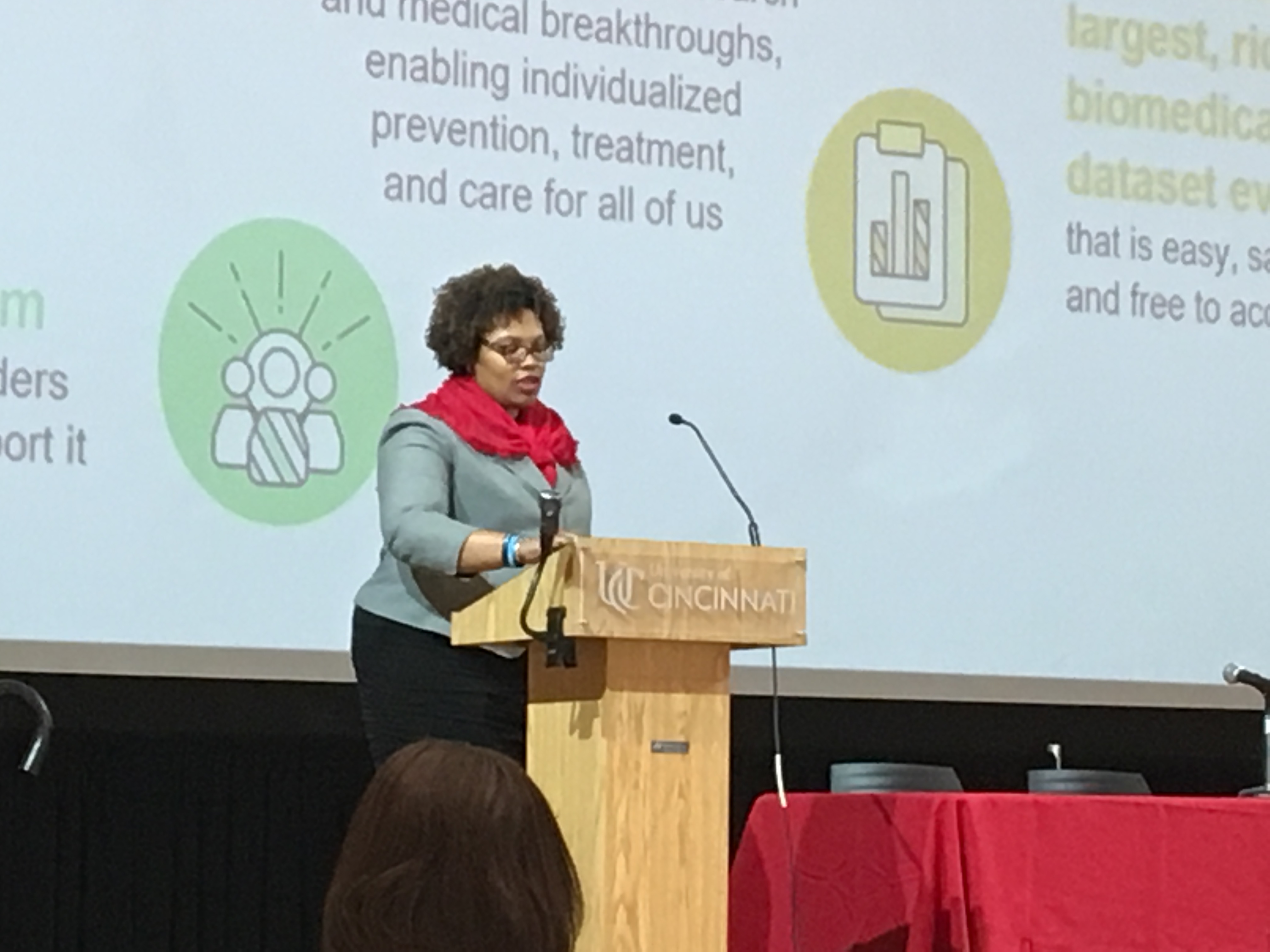
The first keynote speaker, Amanda J. Wilson, detailed the All of Us program the National Library of Medicine and National institute of Health have funded and promoted. Individuals are allowed to take charge of their health by participating in and directing research. Parts of the program include providing access to resources at libraries, community centers, and laundromats to reach the broadest population.
The mor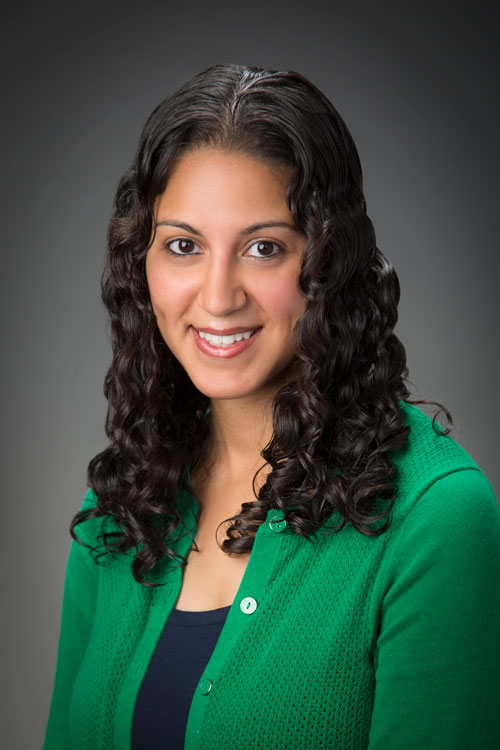 ning panel on Health Equities and Disparities featured speakers from UC and from the Cincinnati region. Reem Aly from Health Policy Institute of Ohio spoke on closing equity gaps for health in Ohio. Tammy Mentzel from CCM showed a snapshot of health disparities in Cincinnati and how discrimination affects quality of life with medical care. Dr. Sarah Pickle (UC Dept of Family and Community Medicine) and Stef Murawsky (PhD Candidate, Sociology) jointly spoke about best practices in training of health care professionals in transgender medicine including disparities in the need for inclusive language when designing surveys, especially when asking for birth sex and current gender.
ning panel on Health Equities and Disparities featured speakers from UC and from the Cincinnati region. Reem Aly from Health Policy Institute of Ohio spoke on closing equity gaps for health in Ohio. Tammy Mentzel from CCM showed a snapshot of health disparities in Cincinnati and how discrimination affects quality of life with medical care. Dr. Sarah Pickle (UC Dept of Family and Community Medicine) and Stef Murawsky (PhD Candidate, Sociology) jointly spoke about best practices in training of health care professionals in transgender medicine including disparities in the need for inclusive language when designing surveys, especially when asking for birth sex and current gender.
Three UC faculty discussed Data Empowering Social Justice in the afternoon panel. Theresa M. Culley, Professor and Head of Biological Sciences, presented on her lab’s study on whether scientists in developing countries are being recognized in works created with their assistance with authorship. Brian Howe, Assistant Professor of Clinical Law, The Ohio Innocence Project/Rosenthal Institute of Justice, discussed wrongful conviction and the state of forensic testimony and how the Ohio Innocence Project is working for change based on new data. Christopher J. Sullivan from the School of Criminal Justice reviewed findings from a recent study on data extracted from juvenile court and police agencies around Ohio to understand patterns of disproportionate minority contact in Ohio’s Juvenile Justice System.
The second keynote speaker, Dr. Deborah Duran, the Director of the National Institute of Minority Health and Health Disparity’s Office of Science Policy, Strategic Planning, Analysis, Reporting, and Data (OSPARD), covered how data needs to be evaluated and re-evaluated for health disparities. AI (Artificiail Intelligence) in diagnosing illness is only as good as the data provided to it. Data may 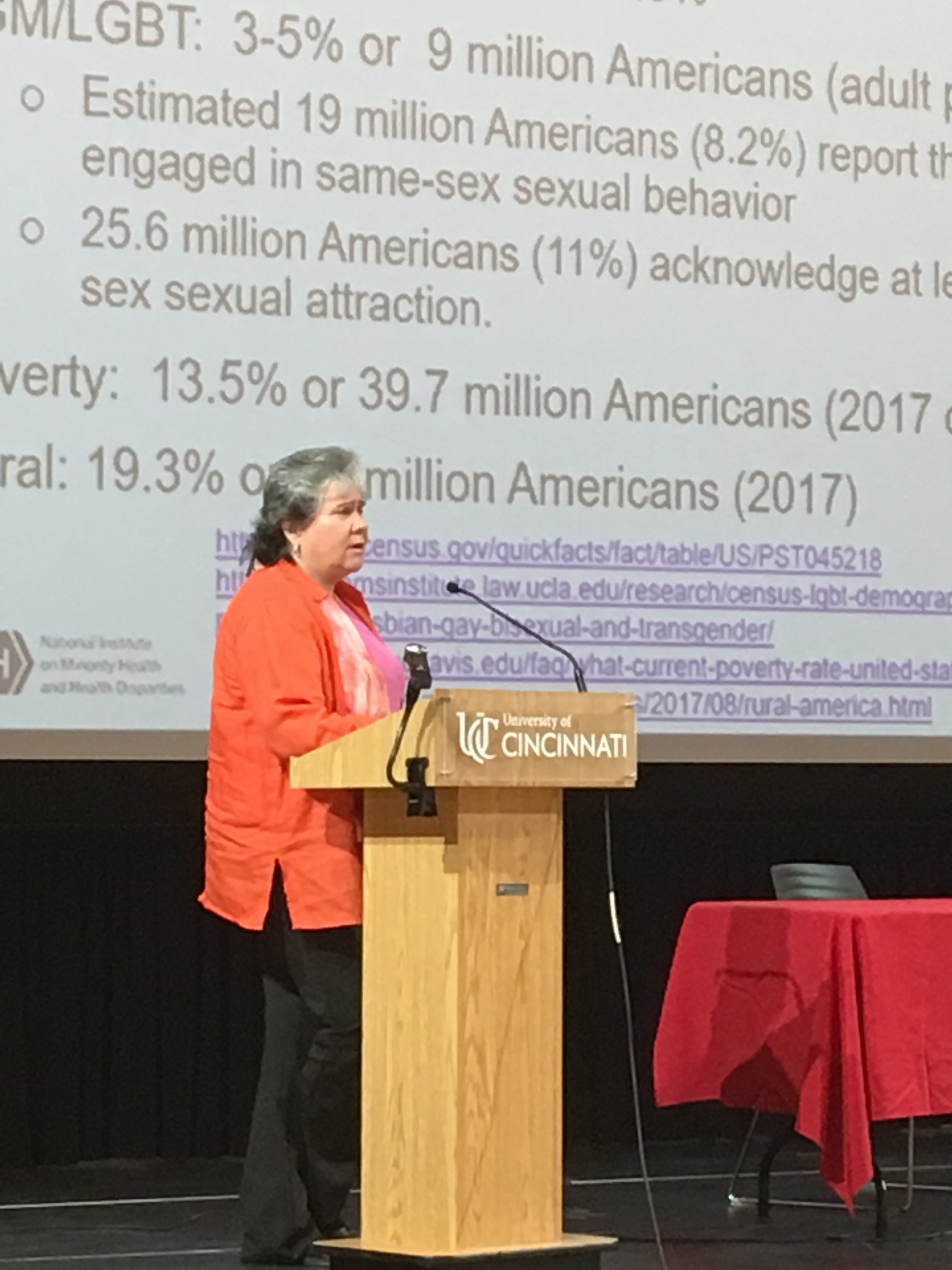 have been collected with a homogenized group (white males) that may not reflect experiences of those of different races or genders or socio-economic backgrounds. Data collection should be evaluated for true representation of the population.
have been collected with a homogenized group (white males) that may not reflect experiences of those of different races or genders or socio-economic backgrounds. Data collection should be evaluated for true representation of the population.
Over 250 people attended the all-day conference held at the Great Hall at TUC. Attendees interacted with each other, the panelists, key speakers, and service content providers during the day. During lunch, service providers from the university and beyond were available for consultation. Members from the National Library of Medicine, the Office of Research, UCL Research & Data Services, UC Scholar, and the Super Computing Center were available.
In the afternoon a Power Session workshop on R and Data Visualization, “Interactive Mapping of Social Vulnerability using R,” was held by Richard Johansen, Data Visualization Specialist and Mark Chalmers, Science and Engineering Librarian. Attendees used GitHub, R, and RStudio to create interactive maps of social vulnerability at the county level. This R in practice workshop’s materials, including the link to the GitHub repository, can be found on Scholar.
Among the Data Day attendees were two librarians visiting UC as part of the NNLM Training Office mentoring project. Elena Azadbakht , Health Sciences Librarian at University of Nevada, Reno and Rebecca Morgan, Clinical Librarian, University of Louisville attended Data Day.
“Attending Data Day really opened my eyes to how data is being used in diverse and novel ways that I never would have previously considered. With presenters speaking on topics ranging from the Ohio Innocence Project to how to properly design survey questions to account for trans and non-binary persons to publication bias in botany literature, I feel confident that every attendee likely encountered a topic or issue in data collection or management that was completely new to them and will benefit them as they engage with data in the in future.” – Rebecca Morgan
“Data Day was a bit different than what I’d expected, but in a good way. Before studying the schedule, I had imagined it would be almost entirely hands-on skills development – the ‘how’ of research data. And while the event featured a power session that introduced participants to the R programming language, most of the day’s sessions focused instead on the big picture of research data – the ‘why.’” – Elena Azadbakht. See more of Elena’s reflections at her blog post. https://news.nnlm.gov/psr-latitudes/university-of-cincinnati-data-day/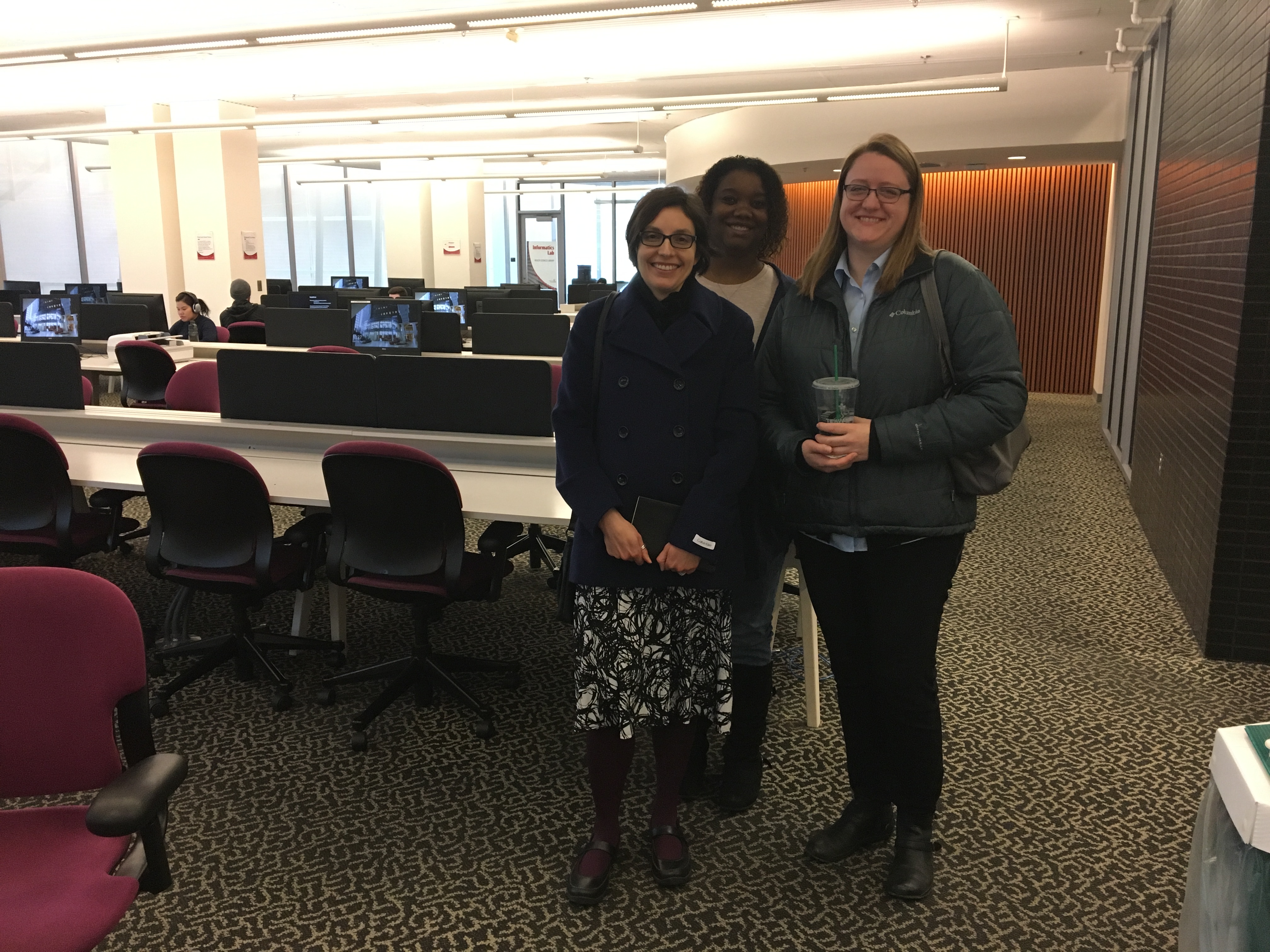
If you missed it, or would like to revisit Data Day 2019, you can access it online. Links to the videos of Data day, slide presentations and related documents for the talks and workshop can be found on Scholar.
UC Libraries provides access to a wide range of Research Data and GIS services and resources for the campus community. Informationists and librarians are available to assist researchers in managing and preserving research data, finding and acquiring external data, and in utilizing GIS techniques and software. The library also provides a variety of computing and collaboration spaces to support researchers. For more information, please contact AskData@uc.edu

